
Under the visionary leadership of Chairperson, Dr. Tarita Shankar, Indira Institute of Management Pune has taken an initiative to ensure the physical and mental fitness of their students. SOUL being the brainchild of Dr Tarita Shankar who herself is an ardent follower and promoter of a healthy lifestyle and mind. This initiative is an attempt to put this important habit into practice amongst today’s youth. Under SOUL we shall conduct inhouse sessions of Yoga imbibed with reading of Bhagwad Gita that shall take care of the body and mind cleansing of the students.
We as an institute believe that the body must be nourished, physically, emotionally and spiritually. We need to recognize that our entire life is in our head. It’s the way we think. SOUL Program will include a series ‘Bhagavad Gita For Today’. It will comprise series of sessions that will coach students to use principles of Gita in their everyday life. Sessions will include a mix of introduction to the particular chapter, its relevance in the 21st century (highlighted through real world examples) and key takeaways to use it in your own life.
The students of this century are exposed to new information at the touch of a screen. They are more aware of the world they live in and possess knowledge of many things around them. With such competitiveness, there comes a need to stop and reflect inwards. The Soul Program is thus built to support our student’s inner growth and well-being as they navigate this fast paced world around them.
The Soul Program is an initiative that builds on our ancient scripture, The Bhagavad Gita and our practice of yoga to develop professional and personal competence of students at our institute.
We all know of the Bhagavad Gita as a 700 verse ancient scripture; a dialogue between Shree Krishna and Arjun about life and the choices we make. It’s not just a discussion on inner conflict but dives deep into understanding who we really are and what our goal in life is. On the other hand, yoga is a physical activity that moves beyond mere flexibility to help us gain physical strength and control our mind through breathing.
The lessons in the Gita will help students deal with issues of anxiety, stress and self-doubt. Coupled with real world experiences, students will learn key insights and how to apply them in their own life.
In recent times, we’ve seen a surge of medical ailments albeit at a young age. Blood pressure, diabetes, eating disorders, weight control and such issues were unheard of in the youth. Lack of physical activity, time constraints, lifestyle compromises have led to students ignoring their health. Now, it’s become necessary for us to build our immunity and have physically stronger bodies to tackle the medical issues of this century.
One of the ways to become more physically fit is the practice of Yoga. It helps develop strength, boosts our immunity and leads to an overall development in the quality of our life. With Pranayam, we learn to control our breathing technique. This has shown to improve our concentration, patience and forgo any apprehensions we may have.
Yoga along with the lessons of the Bhagavad Gita will help students to make better decisions not just for themselves but also as citizens of this world. These lessons will help them exercise control on their emotions such as anger or fear and turn them into well rounded personalities who can tackle any problem with patience and empathy. The Soul Program will inculcate a spiritual way of thinking into students and give them tools which will help them tackle issues head on and without fear. With the knowledge of Yogasanas, they will learn to take care of their body and become physically stronger. We’ll also share some ayurvedic tips in every lesson that students can explore to have more healthy skin, hair and body. Overall, the program will lead to a more positive impact on all our students.
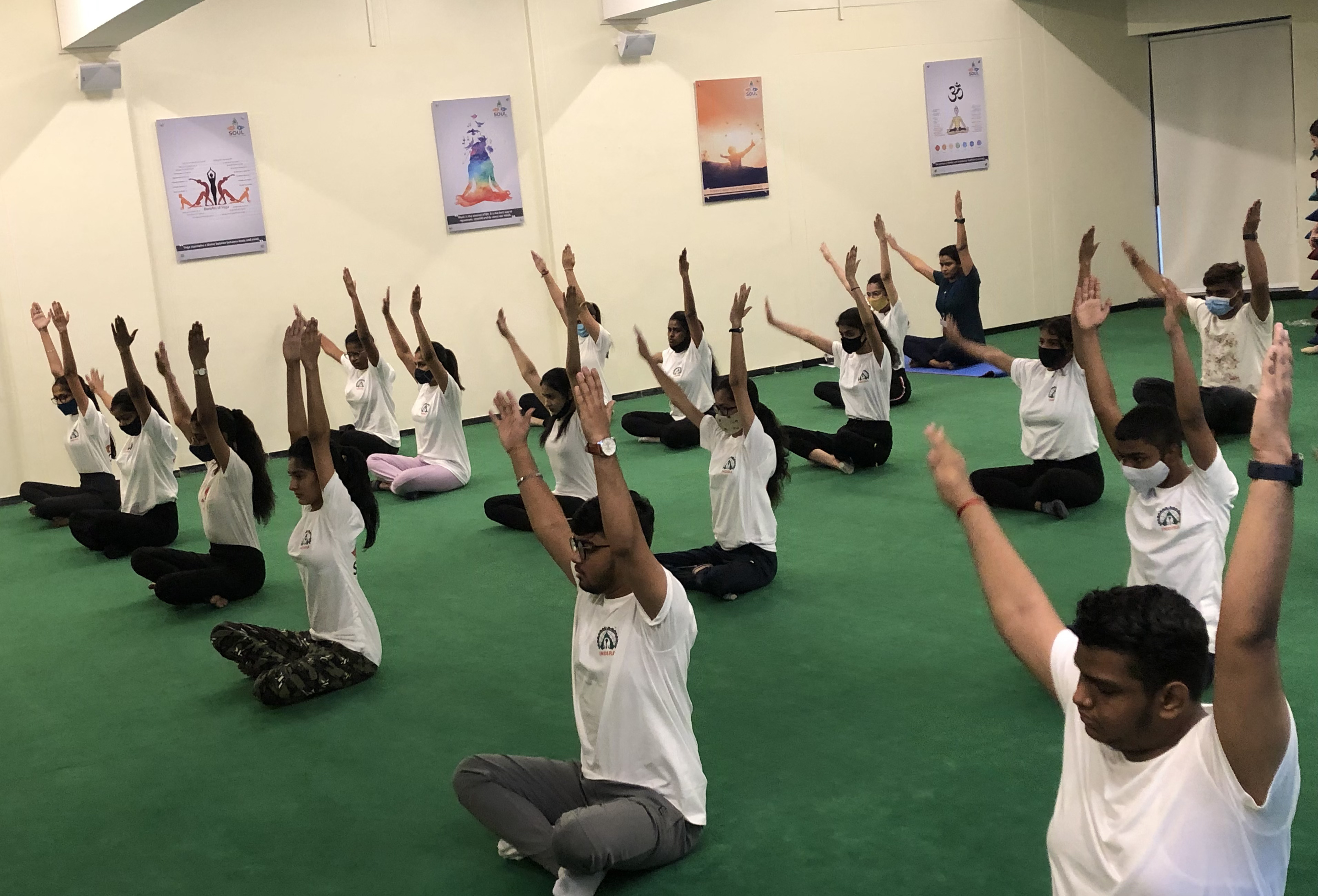
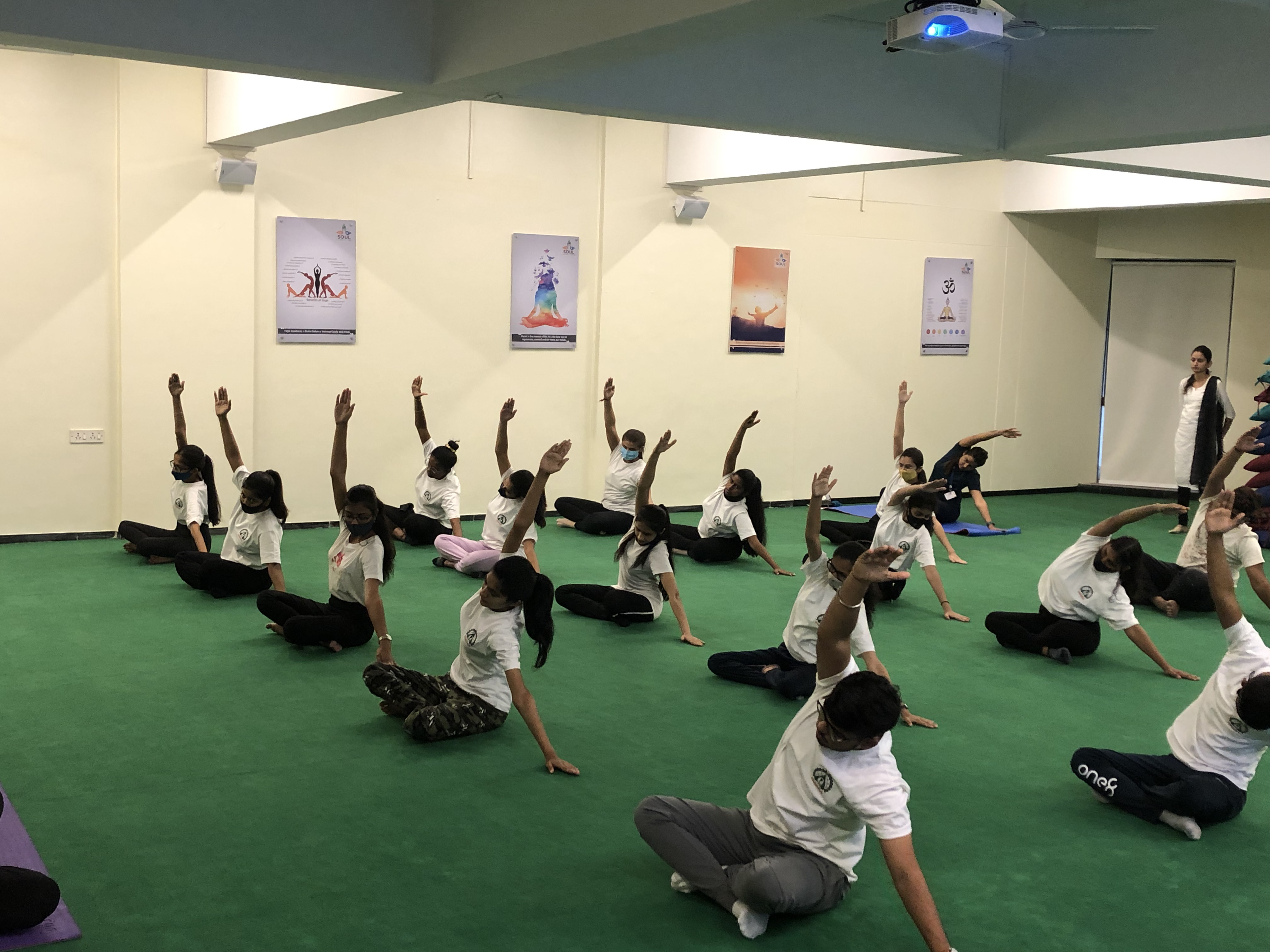
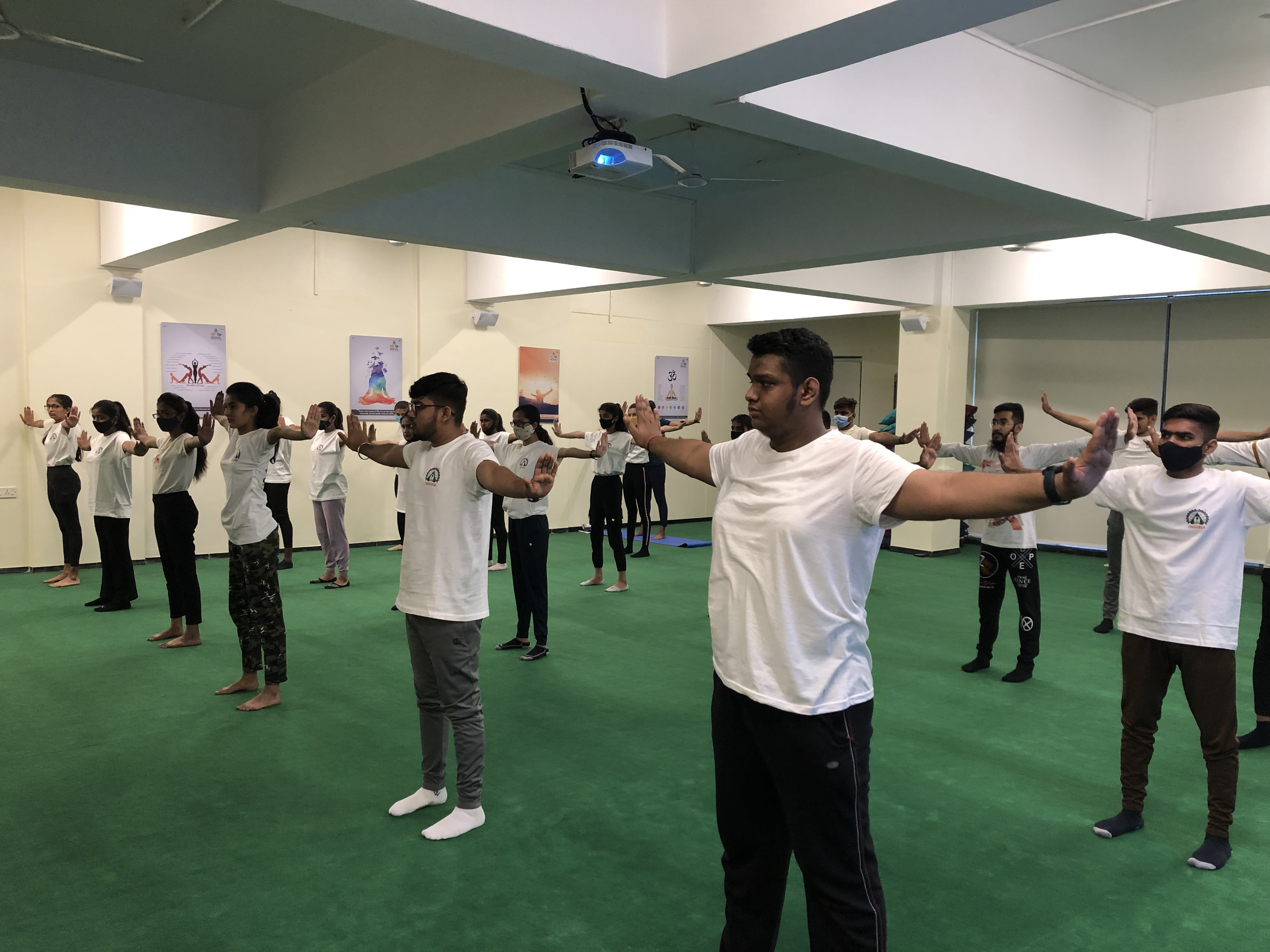
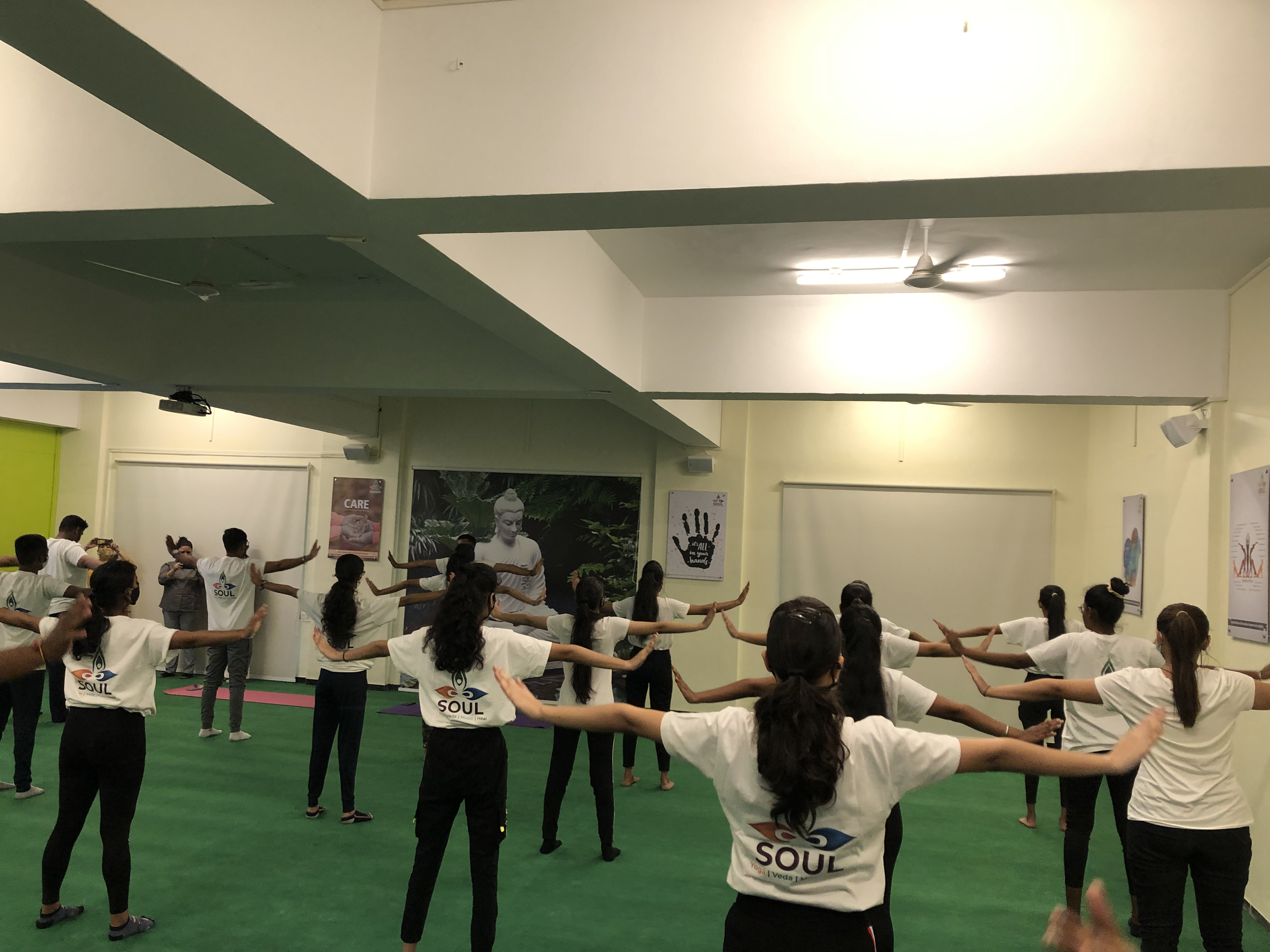
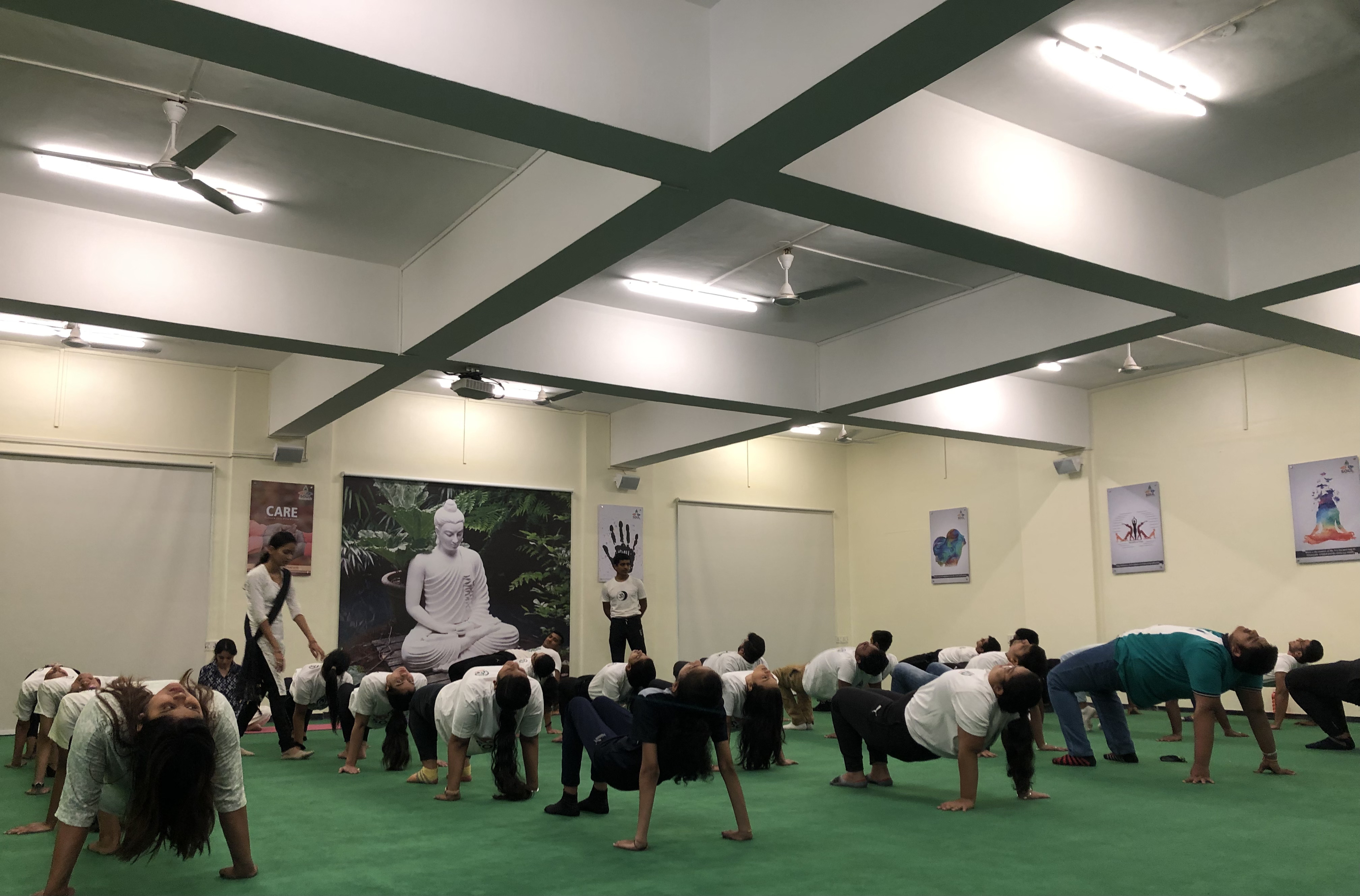
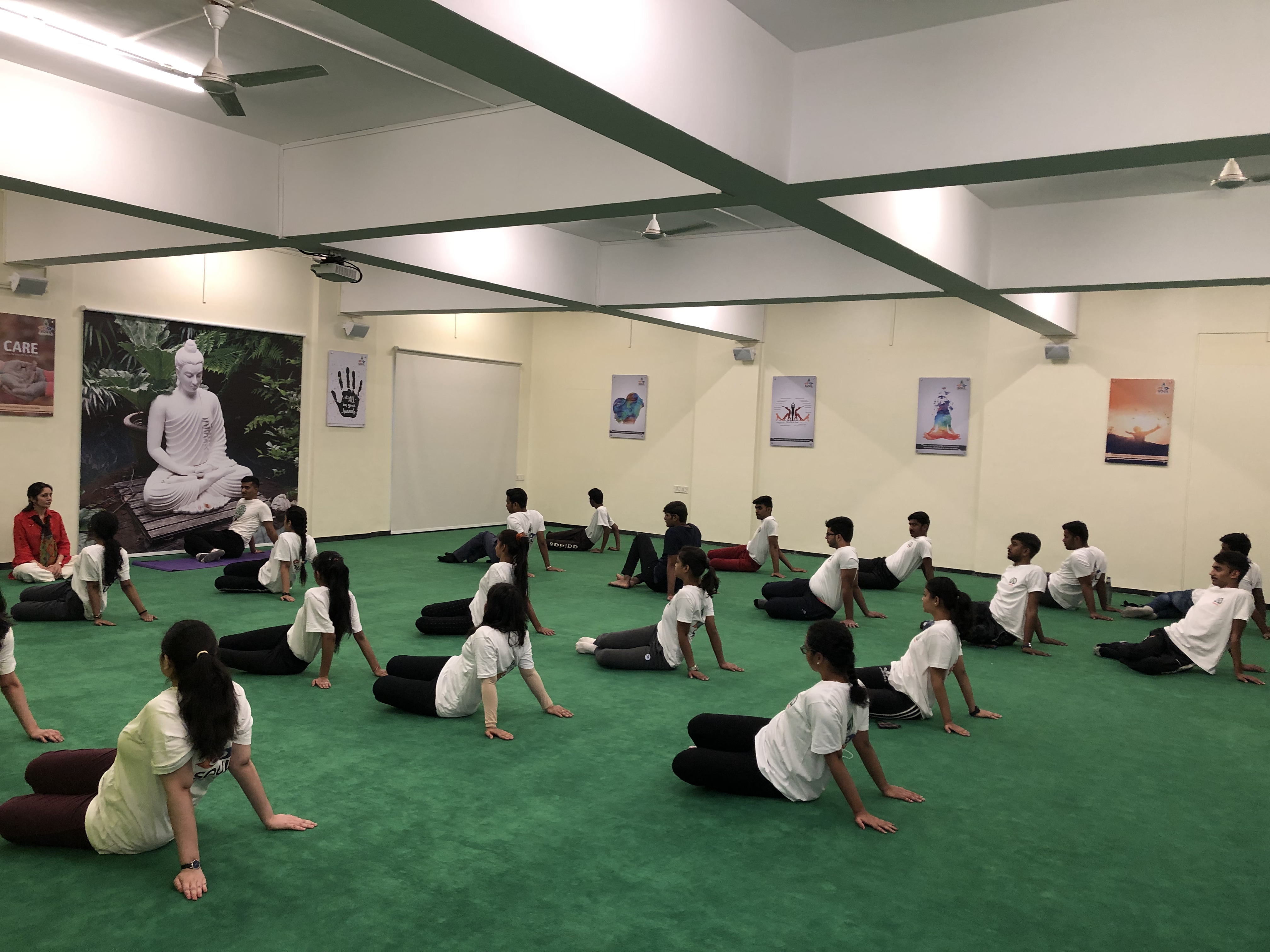
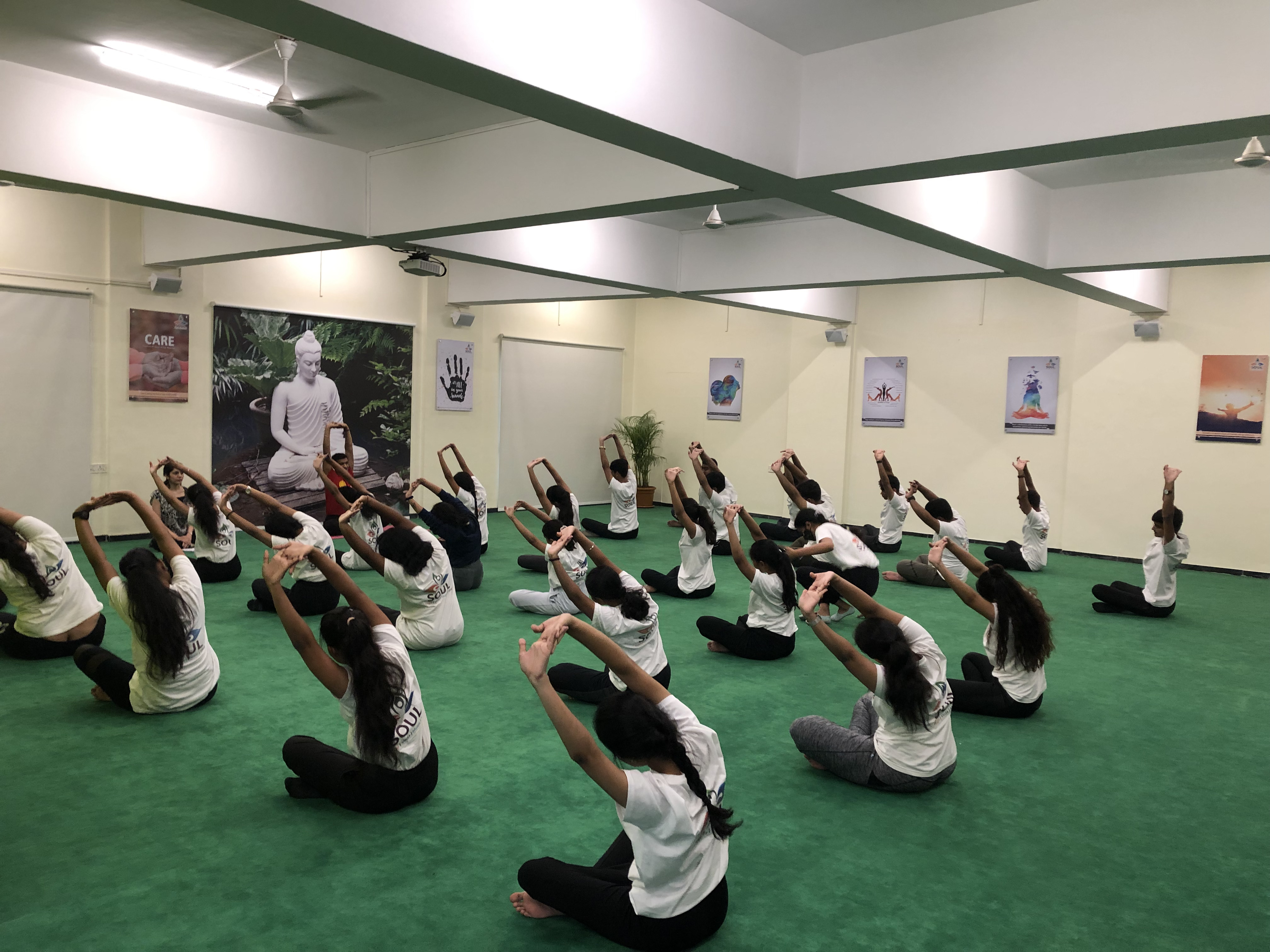
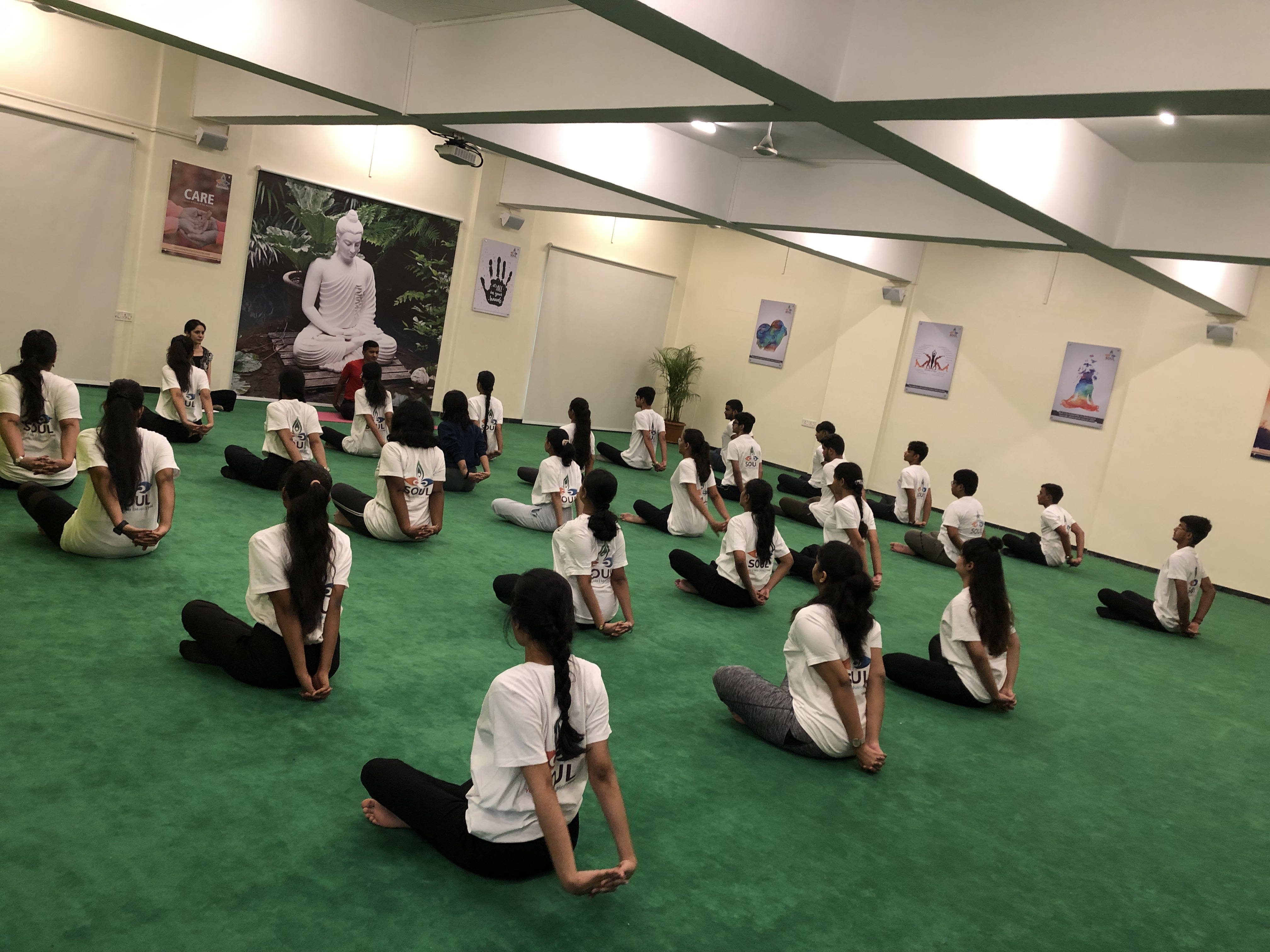
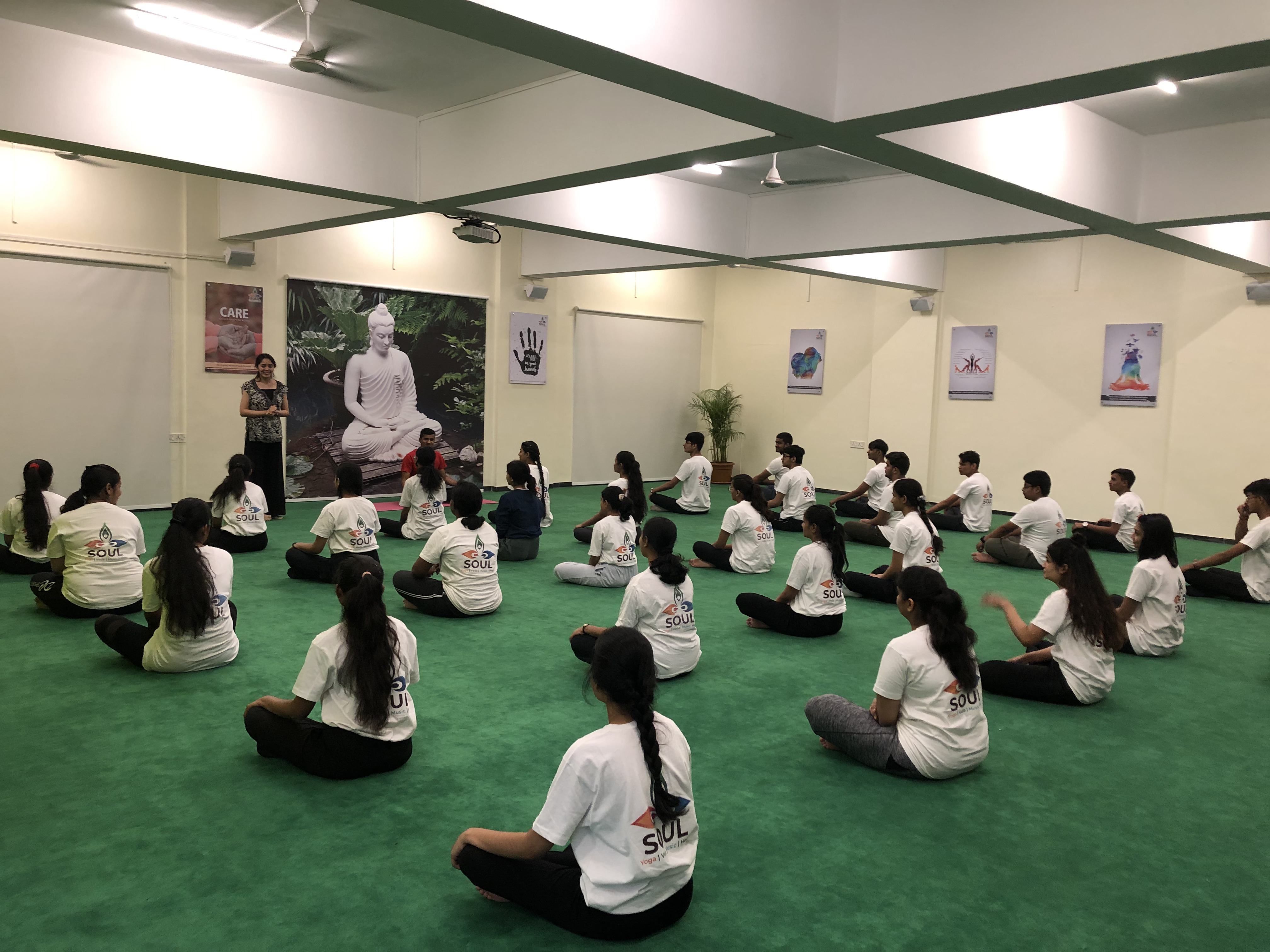
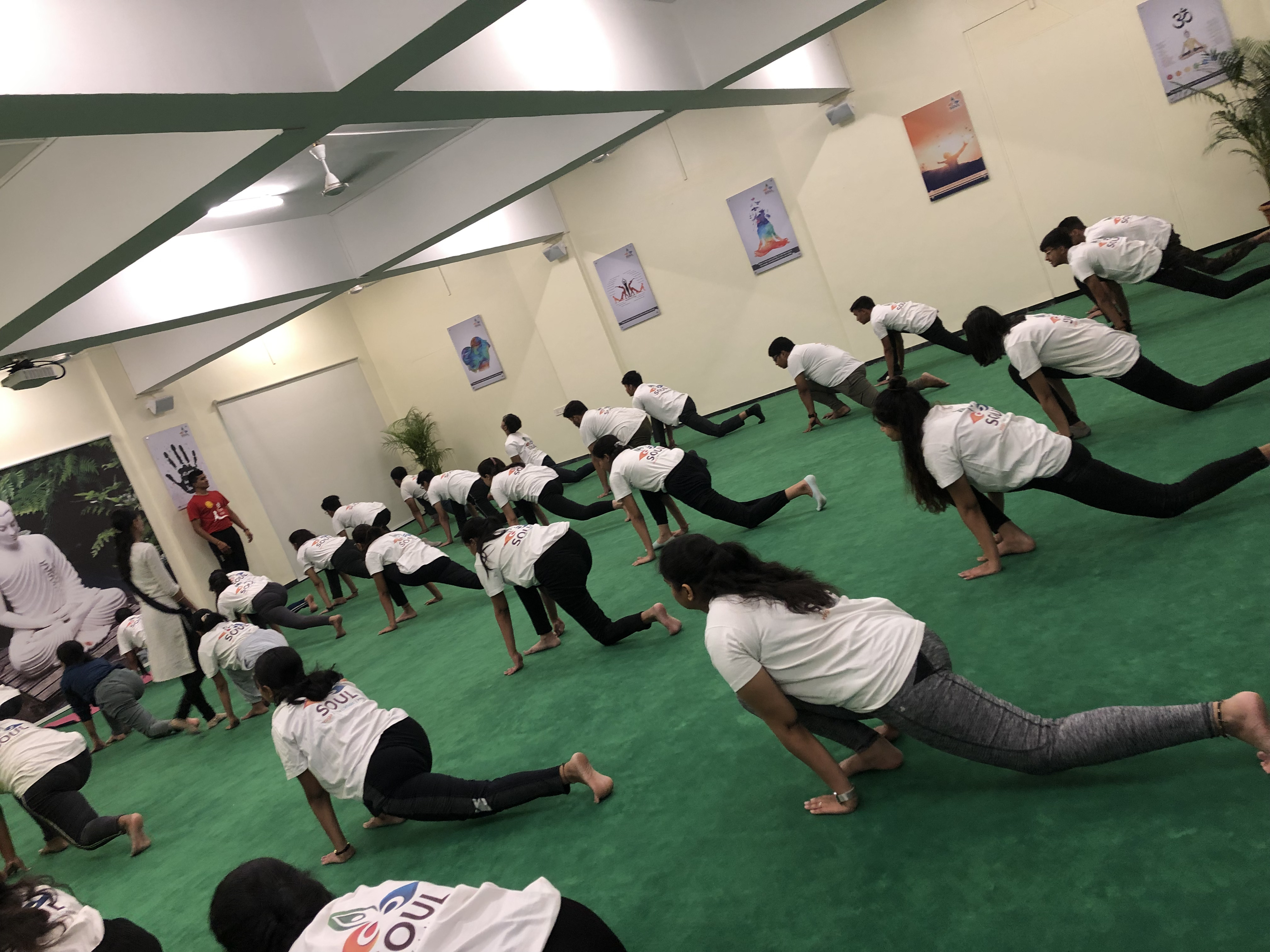
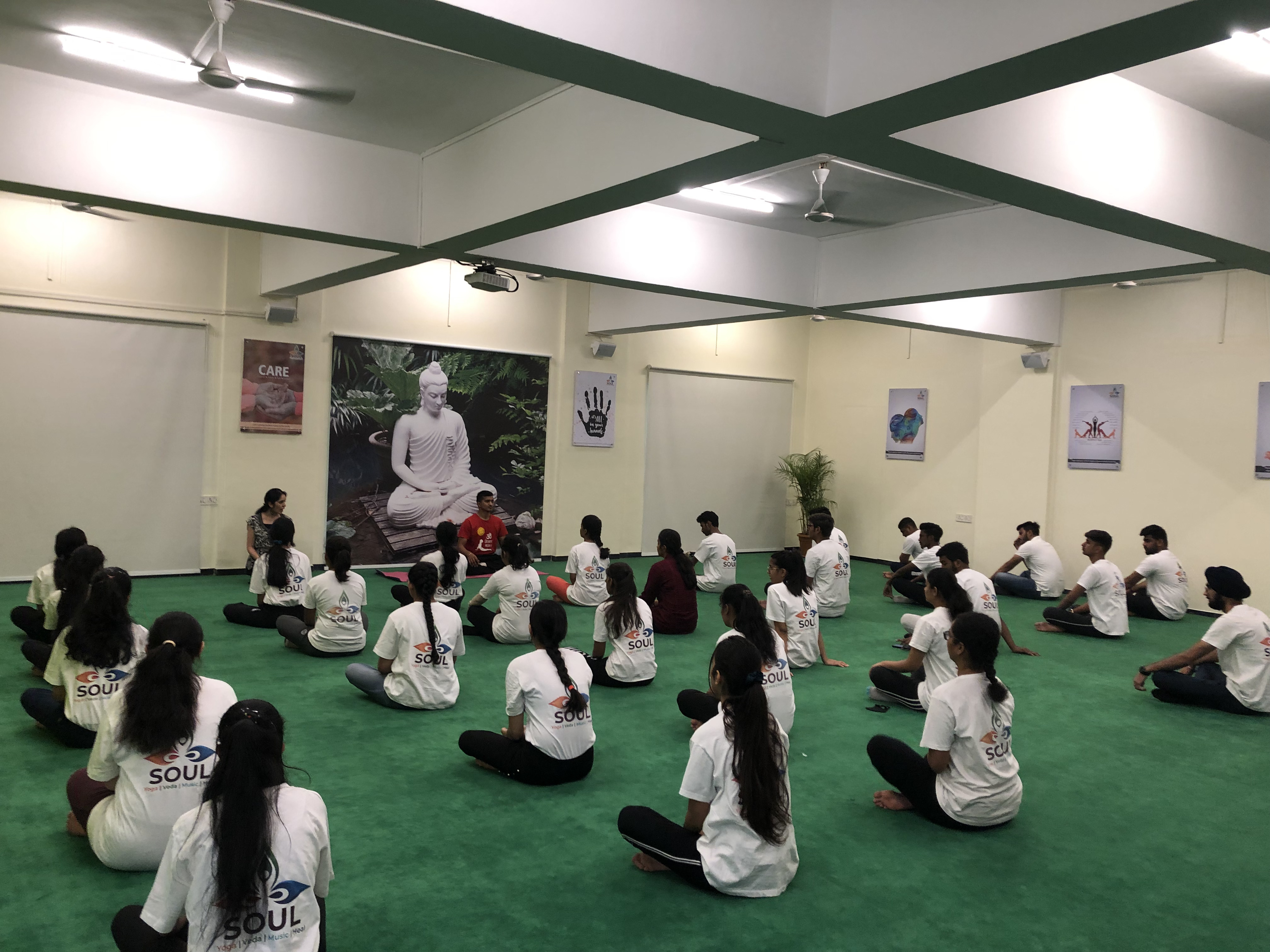
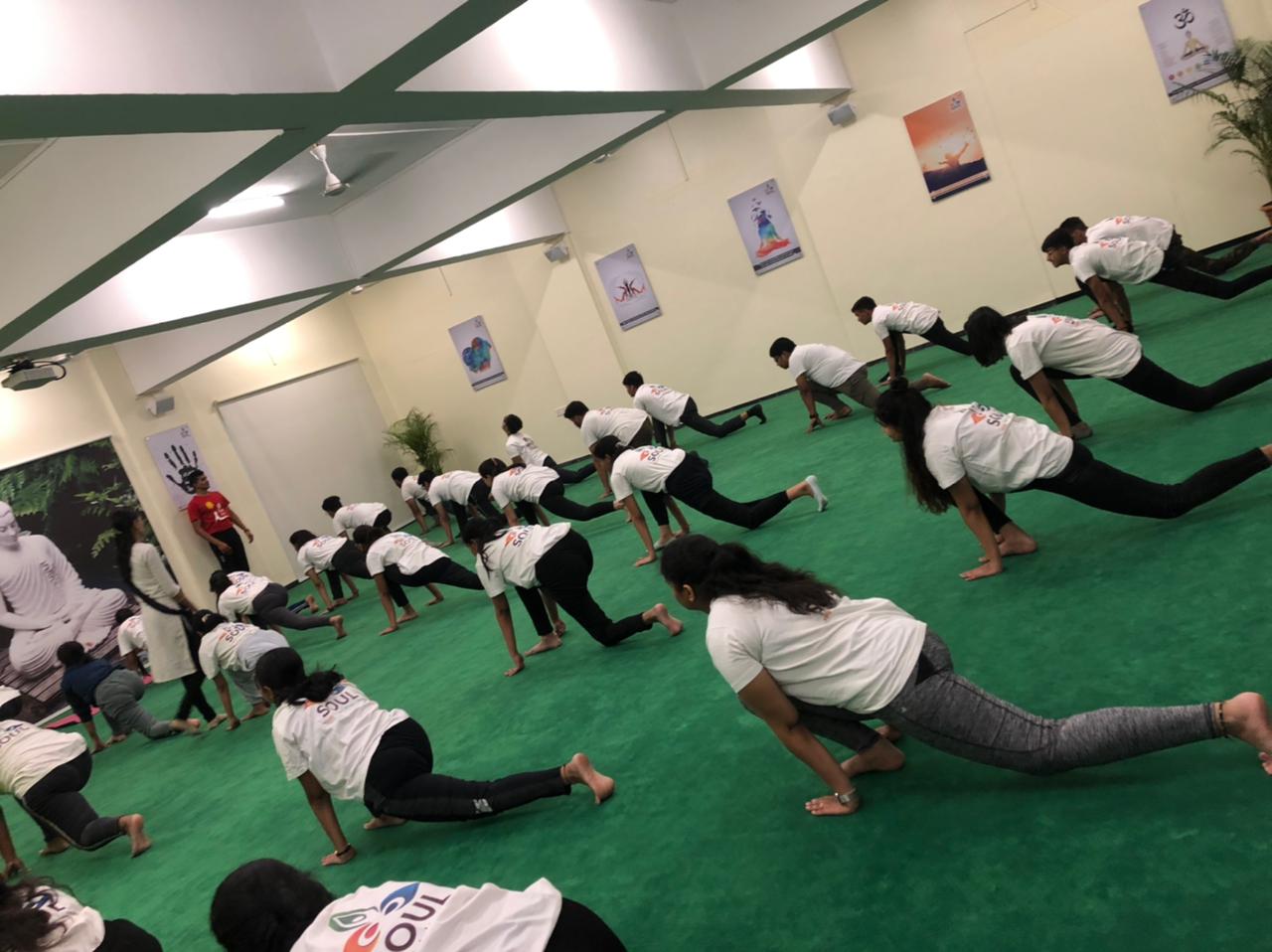
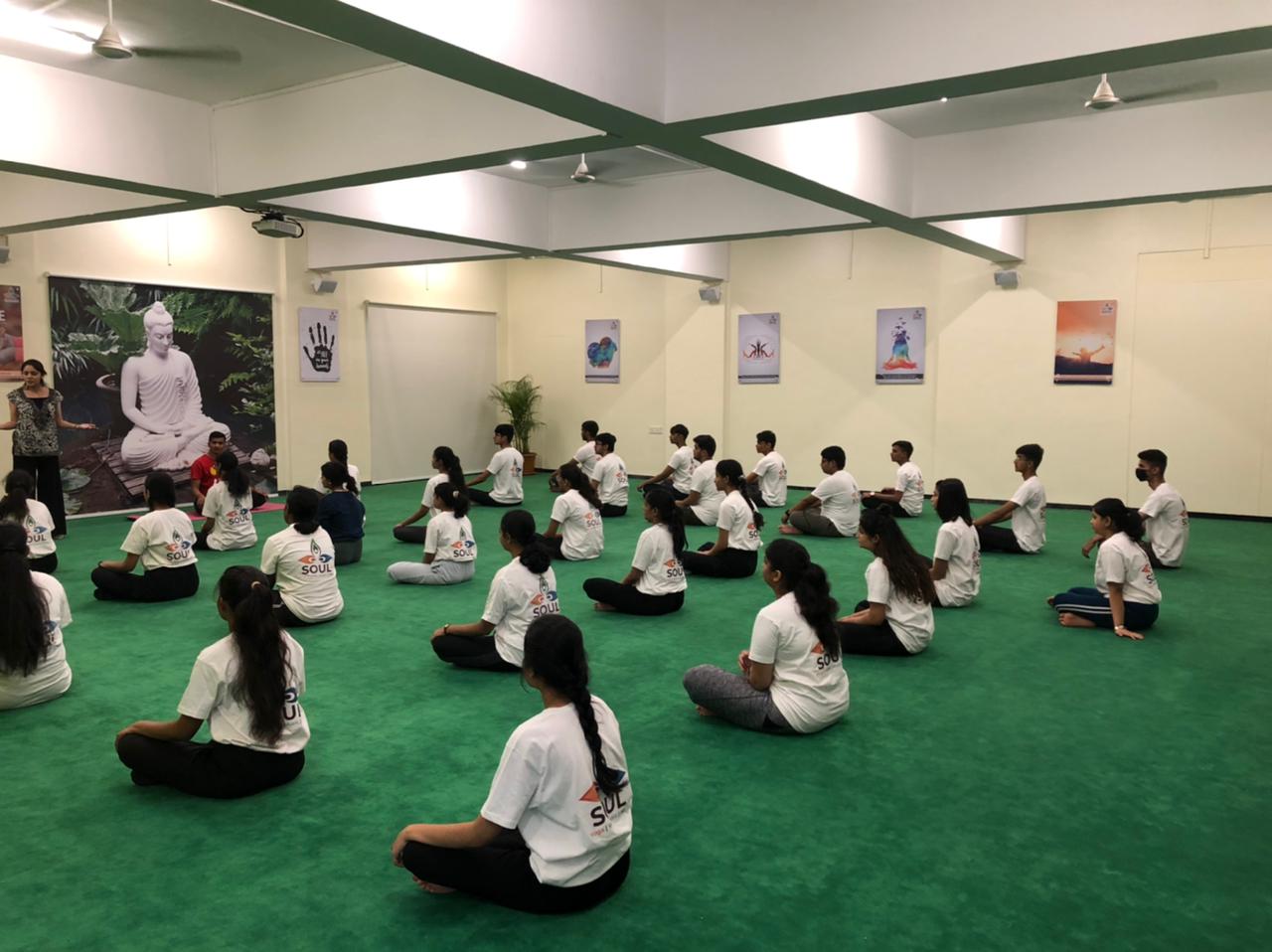
SURYA NAMASKAR also known as the sun salutation is just an exercise that strengthens your back and your muscles. It enhances the size of your solar plexus, thereby increasing your creativity, intuitive abilities, decision-making, leadership skills, confidence, improves immunity and hence it can totally change your life.
URDHVASANA is the first position in the ‘surya namaskar’ or ‘sun salutation’ which is a continuous flow of postures designed to warm up all the key muscle groups in the body, useful for neck or lower back issues. It strengthens the abdominal muscles, torso and shoulders. Best for individual, who suffers from indigestion problems
TRIKONASANA is a standing yoga posture that requires strength, balance and flexibility. The term comes from the Sanskrit trikona, meaning “three corners” or “triangle,” and asana, meaning “posture.” In addition to a range of physical benefits, it unblocks energy pathways in the body. It is one of the basic yoga poses. Trikonasana is commonly referred to as triangle pose.
PARSVAKONASANA generally refers to a variation of two yoga poses - utthita parsvakonasana and parivrtta parsvakonasana. The parsvakonasana requires balance and flexibility and it is similar to the trikonasana poses.
ADHO MUKHA SHVANASANA is a foundational yoga asana that requires flexibility and upper body strength. It gives a range of physical benefits, helps to calm the mind, energizes and rejuvenates the body.
ADHO MUKHA VIRASANA can be used as a recovery position throughout a challenging sequence, releases the spine, helps in lower back pain and shoulder opening. People with stiffer bodies can experience the sensation of spine while doing adho mukha virasana.
85/5 A, Tapasya ,New Mumbai Pune Highway, Tathawade, Pune - 411033
85/5-B, Sarathya Building, New Pune-Mumbai Highway, Tathawade, Pune – 411 033
Phone Number:
© 2025. Indira Institute of Management Pune(IIMP).
© 2020. Indira Institute of Management Pune(IIMP).